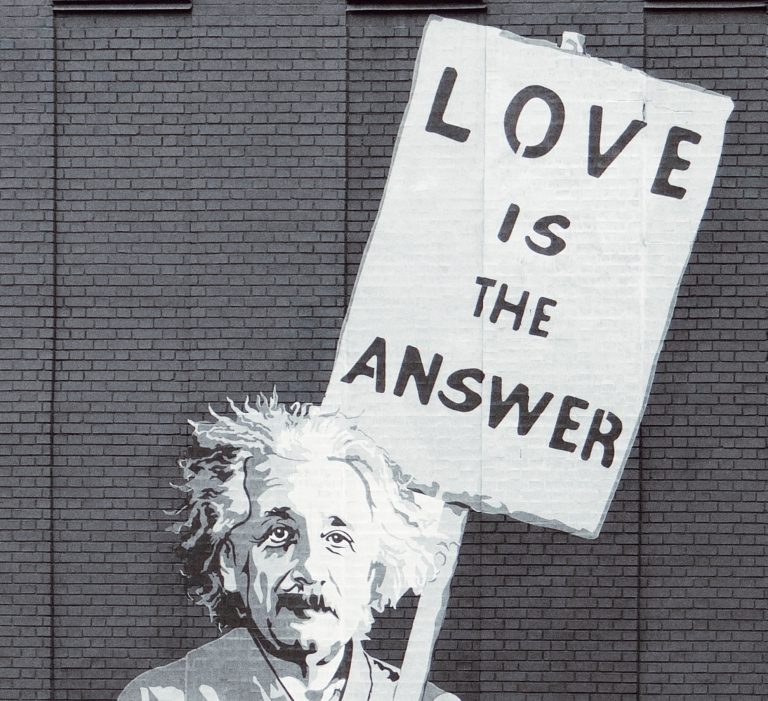Anxiety Answers
Anxiety, Irritability and Depression FAQ

The difference between healthy negative emotions and unhealthy negative emotions lie in how we think, feel and act. Unhealthy emotions feel overwhelming and are accompanied by incessant repetitive negative thoughts that don’t help us to resolve or cope with the situation, instead, we may avoid taking helpful action or engage in harmful behaviour. Healthy negative emotions although unpleasant don’t consume us. Our thoughts and actions are focused primarily on processing and dealing with the situation in a constructive manner.
The fight freeze or flight response is a physical reaction that occurs in response to what we perceive to be a harmful event or threat to our survival. It is thought that this state prepares us for these events by triggering our sympathetic nervous system which takes rapid charge of many of our bodily functions for either running from the danger, going into combat, playing dead or hiding. Stress hormones such as cortisol, norepinephrine and epinephrine are released in large quantities. Physical effects of this state include: hyperventilation, an increase in heart rate, shaking, tunnel vision, flushed (red) face, dry mouth and slowed digestion. If your fight freeze or flight is continually triggered by harmless things that are going on with you, it might mean that you are suffering from an anxiety disorder.
Hyperventilation is simply over-breathing. This over-breathing can be fast – taking in many breaths or it can be deep – taking in large breaths. Acute or short term hyperventilation is caused by anxiety or panic, while chronic or long term hyperventilation is caused by poor breathing habits.
The parasympathetic nervous system is responsible for bringing the body to a state of calm allowing it to relax, recover, and repair. When the parasympathetic system is activated, digestive enzymes are released, your heart rate lowers, breath rate decreases, your muscles relax, your pupils constrict. It is the bodies way of preparing for resting.
Although the parasympathetic state occurs automatically we can induce it through Buteyko slow breathing exercises.
Generalized Anxiety Disorder (GAD) is a chronic anxiety disorder that is not triggered by anything specifically. Like the name suggests it can be brought on by many different things. Sufferers may be overly concerned with money, health, family, work, or other issues. Frequent, seemingly uncontrollable worry and tension are typically present in people who have GAD.
Panic Disorder is when there are unexpected and repeated episodes (panic attacks) of extreme fear/panic. This feeling can be accompanied by hyperventilation, chest pain, nausea, dizziness and abdominal pain. These episodes are usually triggered by irrational catastrophic thoughts that surround a situation and make the sufferer feel like they are in immediate danger. There is a fire alarm going off but there is no fire and the accompanying symptoms such as hyperventilation can contribute to the severity or prolong the episode.
Social phobia or social anxiety is experienced by having extreme fear and hypersensitivity towards everyday social events. It can be limited to only one type of event – such as a fear of speaking in formal or casual situations, or eating or drinking in front of others. In its most severe form, it may be so overwhelming that a person experiences symptoms almost anytime they are around other people, which can result in agoraphobia.
Obsessive-compulsive disorder (OCD) is a condition that causes people to have unwanted thoughts, and fears that are called obsessions. Examples of such obsessions include:
• that they or someone else will get sick, hurt, or die,
• that their environment is hazardous to their health
• that they are going to lose control
These obsessions cause sufferers to create rituals/compulsions in order to feel relief from their fears.
Examples of compulsions are:
• becoming hyper-alert to bodily functions
• excessive washing and cleaning
• hoarding
• checking and rechecking
People suffering from Post Traumatic Stress Disorder (PTSD) usually develop it after experiencing or witnessing a terrifying event in which grave physical harm occurred or was threatened. Examples of these events could be violent or sexual assaults, natural or human-caused disasters, military action, and serious accidents.
Anxiety that serves a purpose like alerting and preparing us for real dangers should not be considered as something that needs to be stopped. Anxiety that is triggered by everyday harmless events serves no purpose. This anxiety can stop us from leading an enjoyable happy life. We can reduce this disordered anxiety by doing 2 things:
• Reducing the physical symptoms of anxiety through better breathing using the Buteyko method
• Finding and replacing the negative thought and behaviour components of anxiety through cognitive behavioural therapy
Find out more here
Many of the things that we feel anxious about may be outside of our awareness. Here are some of them:
• Your work – anxiety is a feeling we get when there is a threat to our survival, for some people they consider their work as part of their survival and can engage in catastrophic thinking about minor occurrences that happened to them while on the job.
• Ready for change- you are not feeling fulfilled in life, your body is telling you that something needs to change.
• Unprocessed trauma- something from your past that you have not dealt with or have avoided thinking about may be triggering you to feel anxious in an effort to get you to slow down and process what happened.
• A Build Up – many things can happen to us throughout our day that can cause us to feel mildly anxious but not know it. Being late, traffic, public transport, multitasking, rude colleagues, etc.. these micro-threats can build up easily.
• Bad Lifestyle: junk food, lots of caffeine, no exercise, excessive amounts of time spent on social media or scrolling news feeds.
• Hyperventilation – how you breathe can make it very easy to be triggered into feeling anxious.
• If you habitually over breathe, your brain is not getting the oxygen it needs. This is because when you over-breathe an excessive amount of carbon dioxide is lost which is required to offload oxygen to your bodies tissues.
• Values: you may be doing something that is not compatible with your values. Is there anything that you are doing that you don’t feel comfortable with? It could be something that is harmful to other people or something that you perceive to be unethical.
Sadness is a healthy response to a disappointment, rejection, a loss, or other difficult situation that we find ourselves experiencing in life. Being sad like this from time to time and getting over it is a part of existence. However, if you find yourself becoming down when there is no supposed reason and staying that way for a lengthy period of time then you may be suffering from depression. Depression can make you feel worthless, hopeless, or guilty along with feeling irritable or angry. You may not feel pleasure in any of the things that you used to find pleasurable. Depression robs you of your natural happiness. Along with feeling this way your thoughts about yourself, others and the world will be consistently negative. You may also experience physical symptoms like poor appetite, aches and pains. You may feel continuously exhausted because depression makes our sleep cycle erratic.
Depression much like anxiety can be treated by dealing with the thinking patterns and behaviours that trigger these spells. Better sleep, more helpful self-beliefs and planned behavioural changes work to stop and prevent depression.
Find out more here
Many people experience bouts of anxiety and depression together.
The symptoms of anxiety and depression can be similar in that they both cause us to become irritable, sleep poorly, have decreased concentration, poor appetites and feel hopeless.
Often the triggering or bringing on of anxiety and depression can be the same – rumination and poor self-regard come before both. Lastly, we avoid doing things that are beneficial to us and can engage in things that are harmful when we are depressed or anxious.
For many people, depression and anxiety are brought on slowly by incessant repetitive negative thinking about themselves and others. It is at this stage that sleep will become poor and that people will lose interest in doing things that they previously enjoyed. They may also feel irritable and act out in extreme ways against people close to them. This erratic behaviour and avoidance of positive action then actually increases the feelings of anxiety or depression. Without doing anything about their mental health over time the self-esteem and coping skills of a person going through anxiety and depression will become lowered.
Many people confuse confidence with self-esteem however self-esteem is much more important than that. Self-esteem is having a sense of self-worth, it is considering yourself to be just as good as other people. When you have self-esteem the triggering thoughts that can cause anxiety and depression don’t stick. Improving mental health is about growing self-esteem, maintaining your mental health is about keeping the self-esteem that you have.
In many instances procrastination can precede depression and anxiety. If you learn to recognise when you are procrastinating and work through the reasons why very often you will find underlying anxiety about how the completed task will be perceived by others. Left unchecked you will avoid doing the task or you will leave it to the last minute and produce poor quality work. Both of these situations are forms of avoidance which cause the rumination that leads to further anxiety depression and irritability.
Safety behaviours are things we do to feel relief from anxiety. Think of them as providing short term comfort but in the long run, they contribute to a loss of control over our feelings. They may prevent us from ever addressing our fears and living a full life. Some examples of safety behaviours are:
1.Avoiding any task that is harmless but might make us feel anxious.
2.Scrolling on your phone when you wish to avoid social situations
3.Excessively trying to please people as a way of avoiding judgement or rejection
4.Consuming alcohol as a way of numbing your anxiety
For most people, negative emotions both healthy and unhealthy cannot be changed by trying to become positive. This is especially true of intensely felt anxiety. To change or lessen our felt negative emotions it is better to investigate our triggers and the self-talk behind them. Looking at our physiology and actions when we feel on edge or down is also beneficial to us in the long term.






